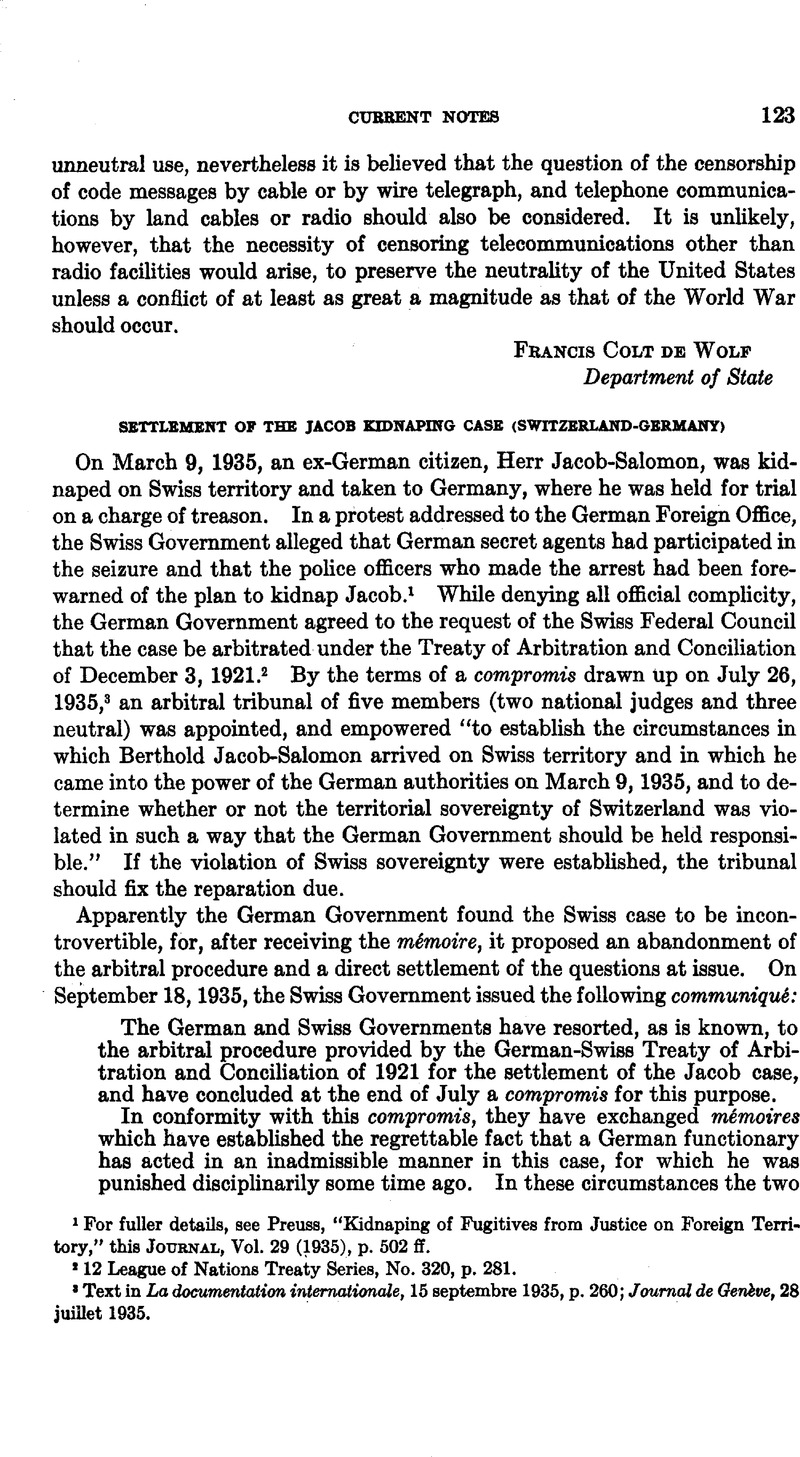Published online by Cambridge University Press: 12 April 2017

1 For fuller details, see Preuss, “Kidnaping of Fugitives from Justice on Foreign Territory,” this Journal, Vol. 29 (1935), p. 502 ff.
2 12 League of Nations Treaty Series, No. 320, p. 281.
3 Text in La documentation internationale, 15 septembre 1935, p. 260; Journal de Genève, 28 juillet 1935.
4 Journal de Genève, 19 septembre 1935.
5 See the charges made by the Swiss Government in its note of April 27,1935. Journal de Genève, April 30, 1935. Wesemann, the principal kidnaper, was arrested in Switzerland shortly after the abduction of Jacob and is being held for trial. Ibid., Sept. 19,1935.
6 In the Gôntsch case between Germany and Switzerland, 1909, the circumstances were almost identical with those in the Jacob case, and received a like solution. This Journal, Vol. 29 (1935), p. 506.
In 1876, one Blair, charged with fraudulent bankruptcy in England, fled to the United States. His creditors hired a private detective, who, apparently with the complicity of American officials, arrested Blair at New York and placed him on a ship bound for England, where he was tried and sentenced to imprisonment for eighteen months. On complaint to the British Government, Blair was released and returned to the United States, although it was not certain whether or not his illegal arrest was solely imputable to a British subject. Travers, Le droit pénal international, III (Paris, 1921), No. 1302, VIII.
In 1910 the French conseil de guerre asserted jurisdiction over a French deserter who had been forced over the Belgian frontier by one Fostier, a private individual. He was arrested on French territory by French gendarmes, who had been forewarned of his arrival. Travers approves this decision on the grounds that the arrest was made according to legal forms and involved no acts of violence or constraint by State agents on foreign territory. Fostier was sentenced in Belgium to imprisonment for one year and to a fine of 100 francs. Ibid., loc. cit.